Audi is set to intensify its development of hydrogen fuel cell technology, according to a public announcement by chairman Bram Schot.
The reasons behind the move include concerns over the sourcing of natural resources for battery production and doubts over electric cars being able to deliver on ever-more-demanding customer expectations.
As a result, the German car maker will re-establish its h-tron programme in a move planned to make it the centre of competence for hydrogen fuel cell technology within the Volkswagen Group.
“We really want to speed it up,” Schot said. “We are going to put more priority into hydrogen fuel cells – more money, more capacity of people and more confidence.”
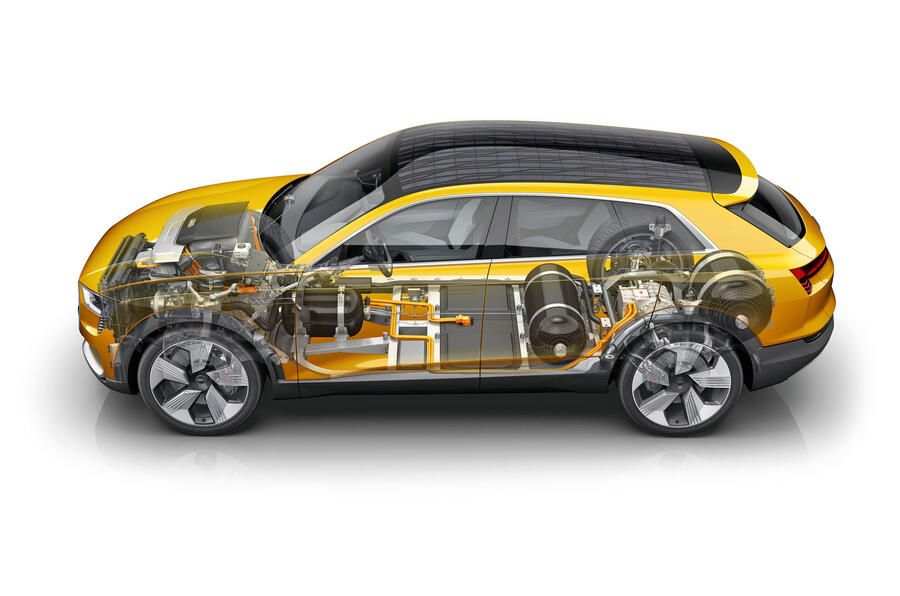
Schot confirmed a new sixth-generation hydrogen fuel cell prototype will be revealed later this year. He added that a limited-volume pilot production Audi FCEV (fuel cell electric vehicle) model could be offered to customers as part of a lease programme by 2021. It is expected to be produced on a dedicated line at Audi’s Neckarsulm plant in Germany – a site that presently produces the Audi A6, Audi A7 and Audi A8.
Schot tells Autocar about Audi's future
A timescale for volume production of Audi FCEV models has yet to be decided, but Schot is confident this could occur during the second half of the next decade. The new fuel cell technology is developed from a cross-licensing agreement with Hyundai, which already sells the Nexo SUV. The two car makers announced they were joining forces on FCEV development in June last year.
At the 2016 unveiling of the h-tron fuel cell concept, Audi claimed a range of up to 600km (373 miles). Crucially, it also promised a refuelling time of just four minutes.
The decision to push ahead with fuel cell development comes in the middle of a broader £12 billion offensive in which Audi will launch up to 12 pure-electric battery-driven models by 2025.
Schot, who succeeded Rupert Stadler as Audi chairman in January, pointed to the scarcity of materials and subsequent doubts over the high-volume supply of batteries as just two concerns facing car makers.
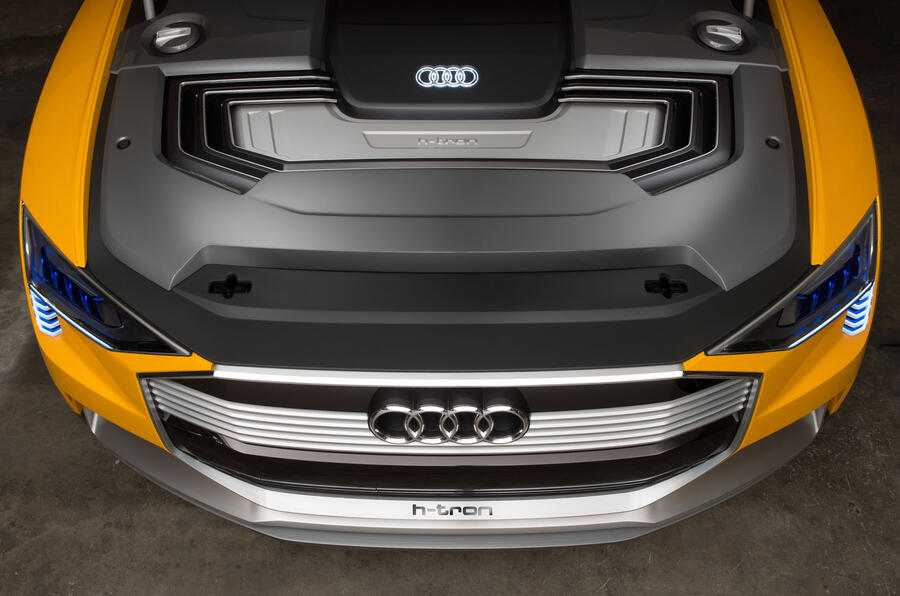

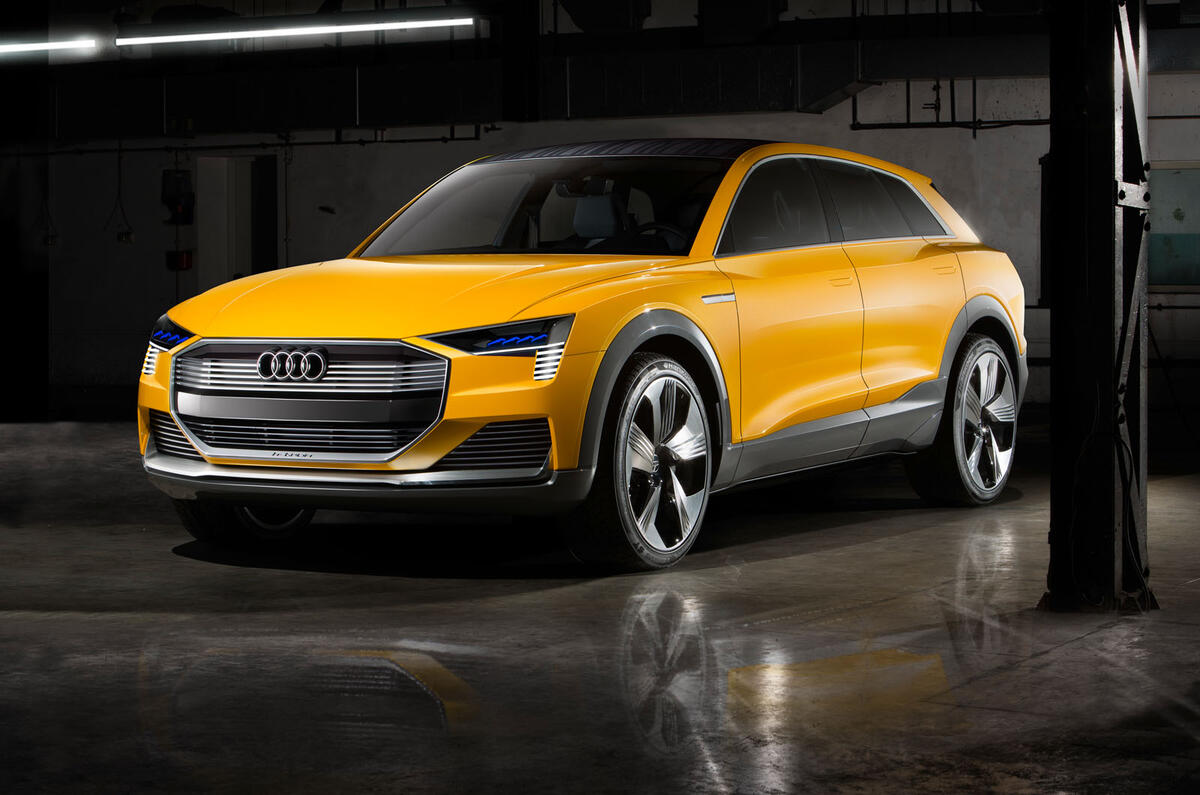

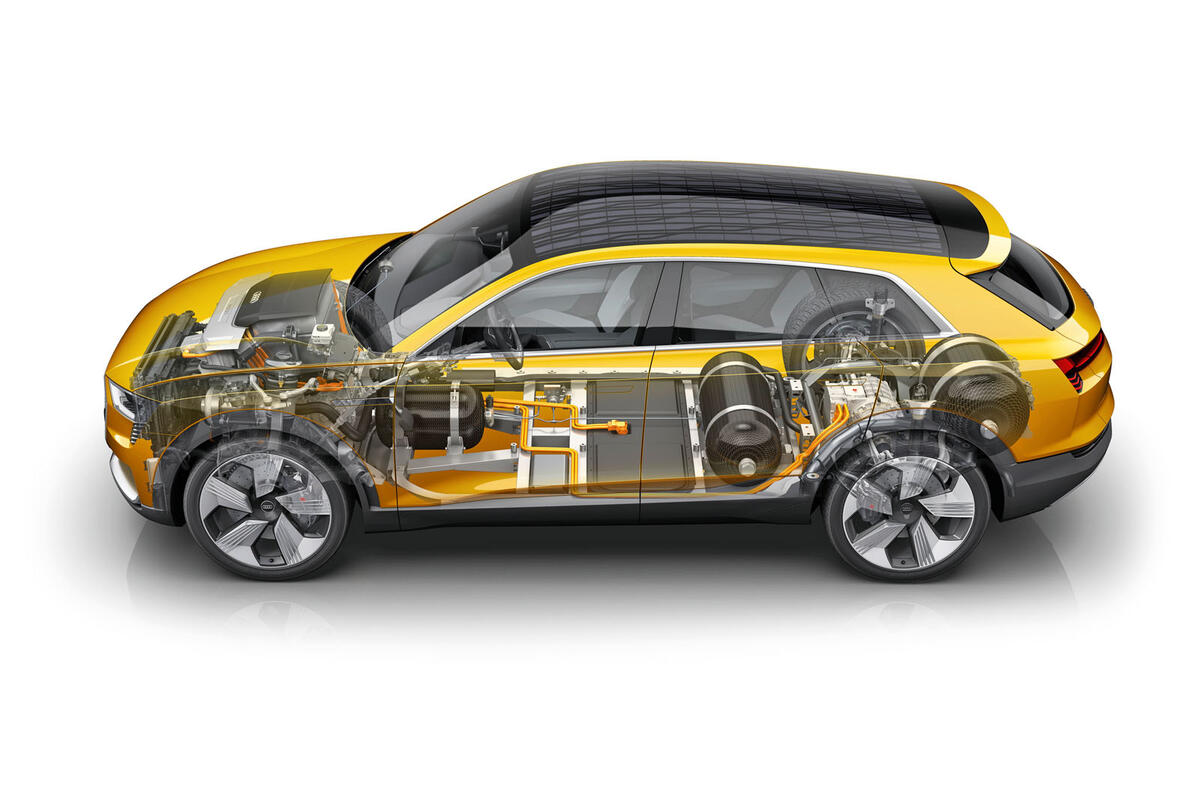
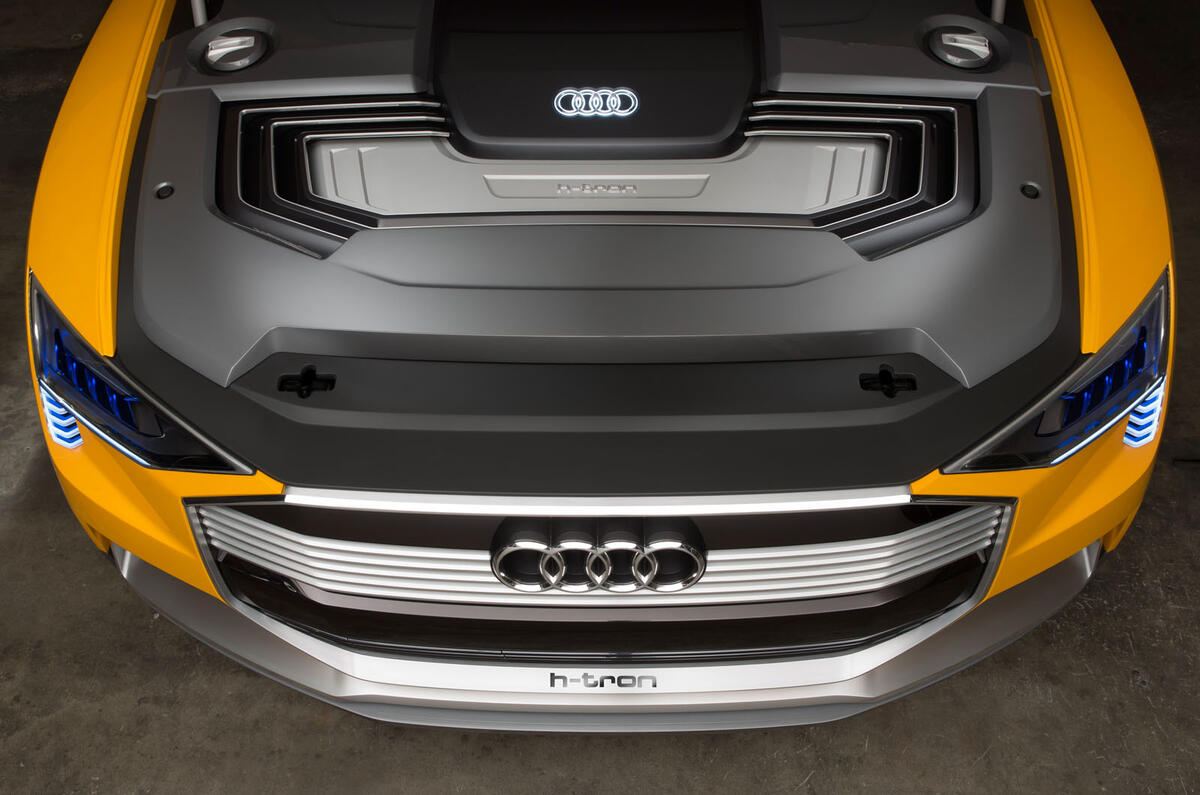
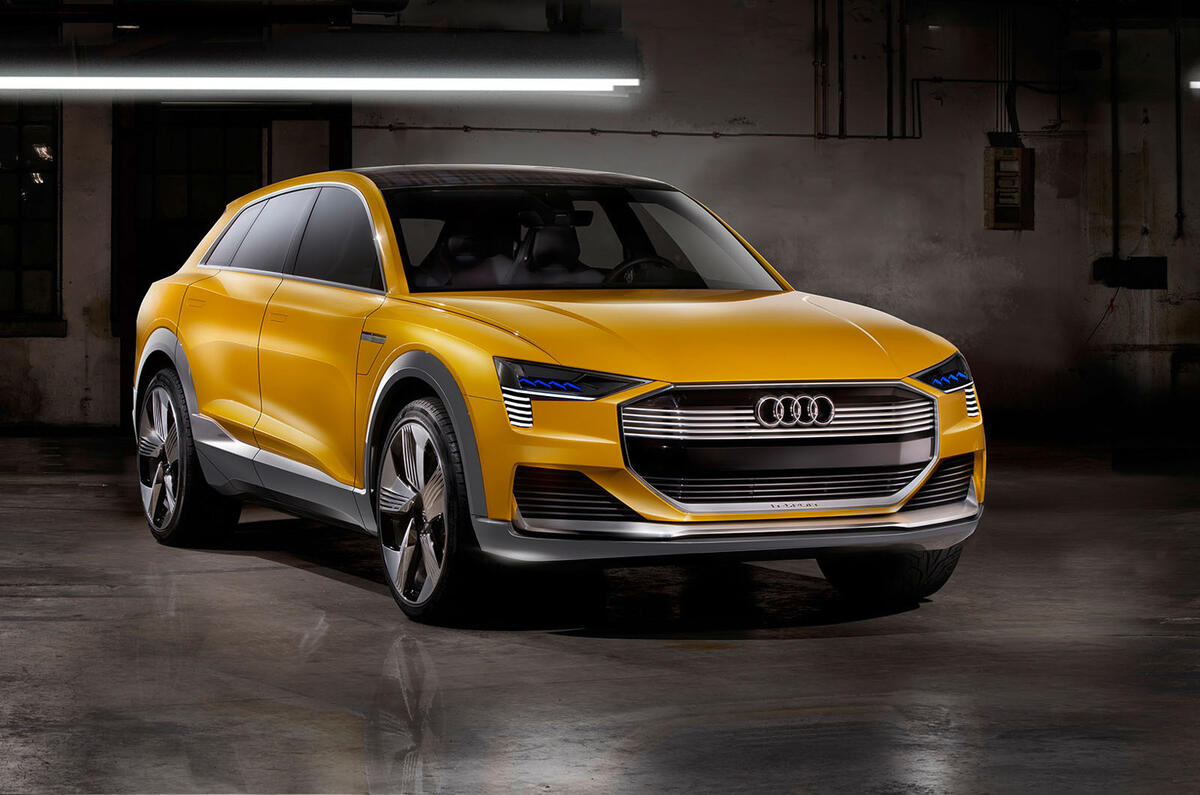
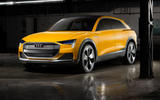



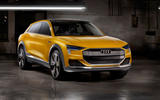


Join the debate
Add your comment
Interim solutions
Big Battery BEVs, HFC, PHEV, in my opinion all are useful but interim solutions. In the long term we will see first static inductive charging which will still need Large capacity BEVs but in the next few years we will see the emergence of active inductive charging. i.e electrified roads. BEV and PHEV of course are the ideal interim and compatible solutions allowing this to emerge seamlessly. In the long run once we have fully autonomous EV with small batteries to bridge the gaps in the Active electrified roads we will have a flexible and pollution minimising network. Even the old big BEV batteries will not pose a significant disposal problem. They will not be dismantled or recycled. They will be reused as they lose some of their energy density capacity into domestic and commercial storage farms. This will also mean the end of hugely expensive and wasteful investment in rail since an autonomous EV has all the advantages of a train with none of its problems. We need to stop criticising current solutions because they cannot solve every current problem but instead analyse which ones facilitate a path to the future. With a fully electrified fleet we will have automatically provided the grid storage to make sense of erratic renewable energy sources. It is not just about picking ultimate solutions but recognsing which ones have a credible path to adoption and also appreciating that there will be no one size fits all answer.
Finally, Auto industry big wigs owning up!
Mass BEVs is extremely unlikely to ever take off!
Fuel cell technology with smaller battery requirements, and all the range you could ever want is undoubtedly the future.
BEVs? Does anyone remember Betamax?
Also slower, heavier, more
Sure
Hydrogen car? anyone remember the flyig car?
This is the future
Thekrankis wrote:
The amount of electricity required to isolate and compress hydrogen (before it even reaches the car) makes this technology obsolete. Advanced batteries are the only way forward.
Not so...
The research is ongoing to develop economic and viable Hydrogen production.
It will happen.
Sonic wrote:
I'm not convinced it's obsolete but neither am I convinced it's the ideal solution. It partly depends on where the energy to produce the hydrogen comes from. If you can build your hydrogen plant near a souce of renewable energy then maybe it still has potential however it will never be as efficient as using the energy from that renewable power source to directly charge a battery. Then again with a battery powered EV you have the challenge of sourcing the materials for the battery and then recycling it at the end of its life.
Will86 wrote:
Exactly right. There is also quite a bit of power loss between the transitions to generate the hydrogen, and energy usage for transportation etc. It's super complex and expensive compared to just charging a battery directly from a renewable power source.
Although, as the battery size required to power a hydrogen vehicle does not need to be as large as a pure EV, I think the technology can still be useful for larger transportation, like shipping.
Sonic wrote:
This issue with your statement is "just charging your battery directly" - you aren't plugging into a power plant.
There's significant transmissions losses, further losses between the car and charger, losses from battery inefficiency.
A hydrogen fuel cell offers substantial benefits - and as it still runs via electric power, PHEV benefits are substantial. It's a technology that gels well with pure EV tech, and doesn't produce CO2 itself.
Not sure you've thought this
More to the point, the gross has been designed to achieve high efficiency transmission with only small losses.
Conversely the "round trip efficiency" of electricity-hydrogen-electricity is shockingly poor. Which is why in practice the world's hydrogen comes from steam reformation of methane - i.e. it's a fossil fuel.
This poor round trip efficiency is due you fundamental physics, so it's no use saying "it just needs more research." So in a world where "renewable energy is so plentiful we can afford to throw it away" hydrogen works well. Our world, not so much.
Oops
Sonic wrote:
One of the projects I'm currently working on will produce so much hydrogen, as a biproduct, they will have to burn it off.
No idea how big your project
Mattster wrote:
Of course not.
I mentioned it because internet simpletons have no understanding of energy, how it is stored, how it is transferred, etc, etc...